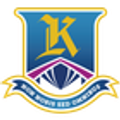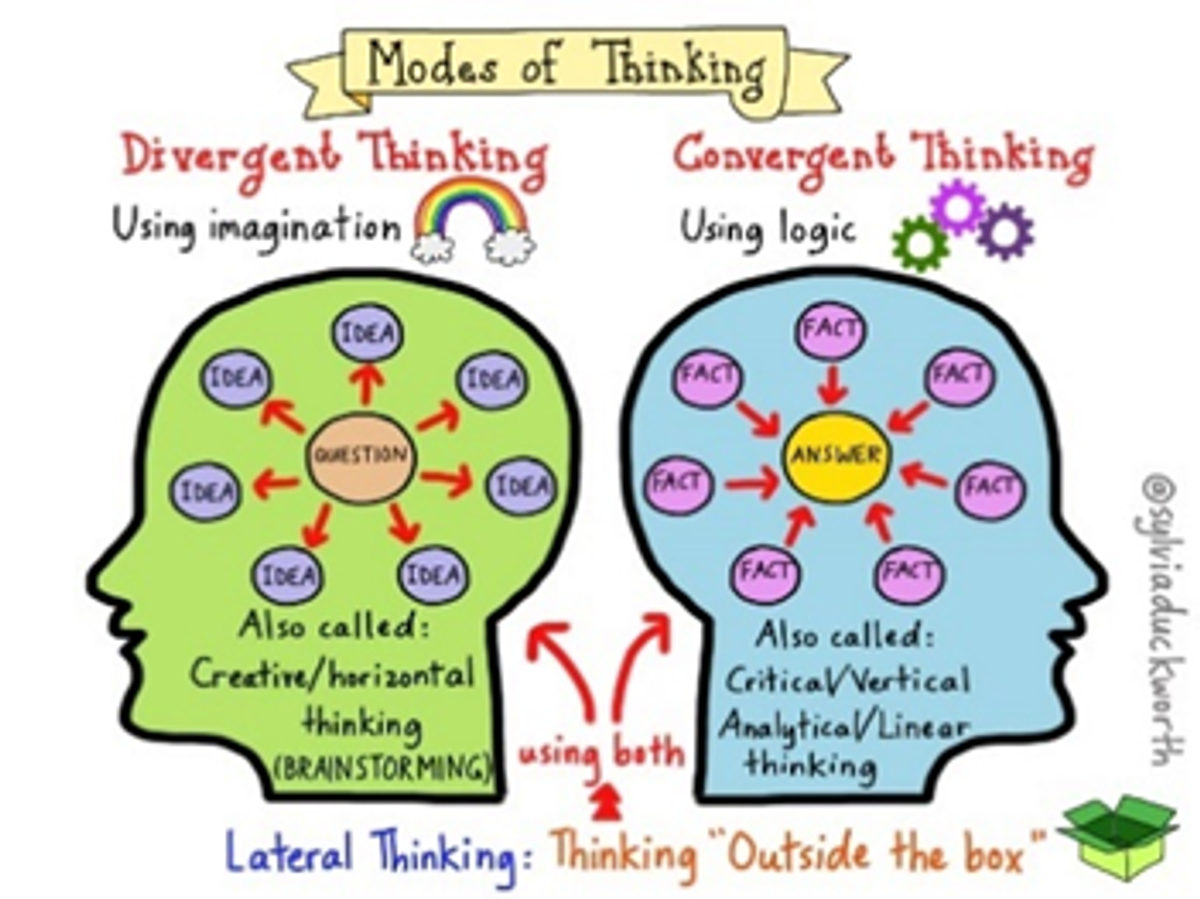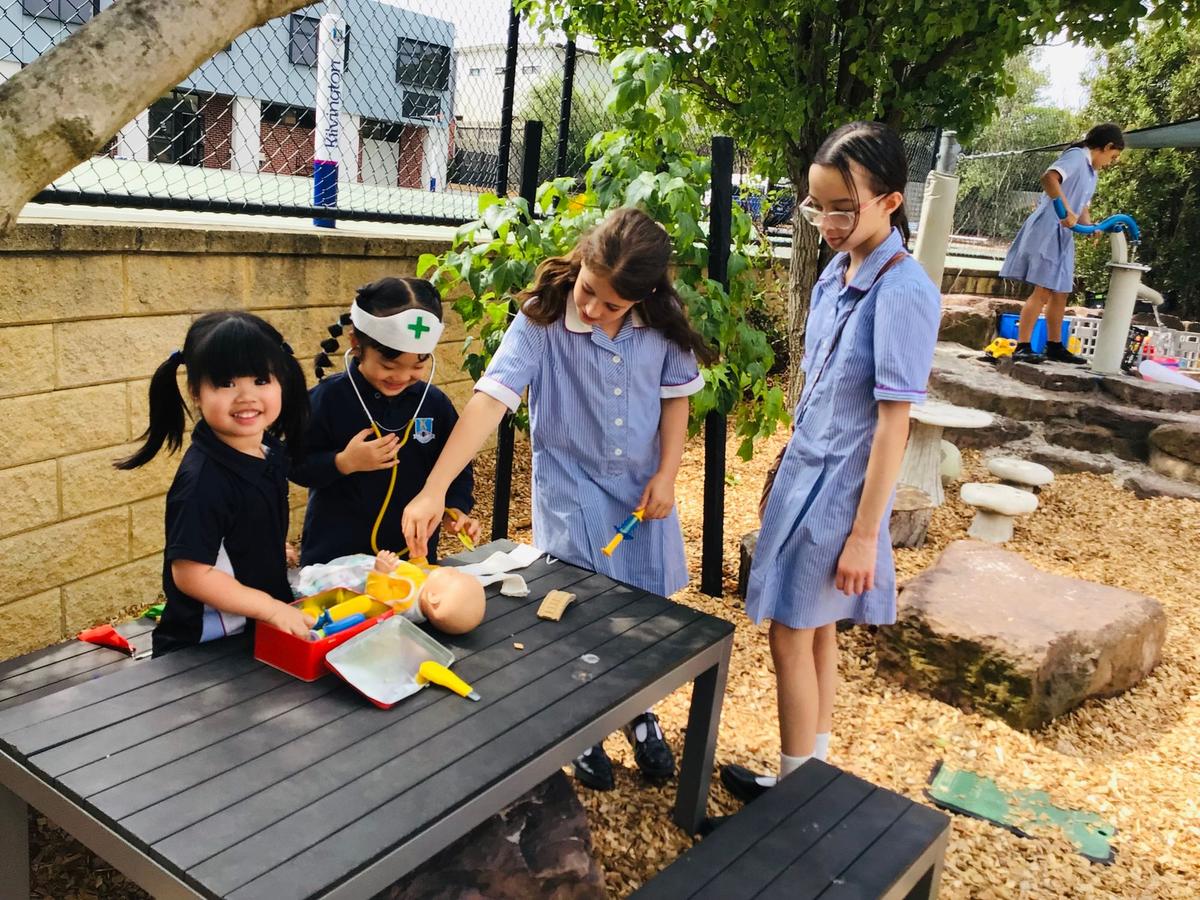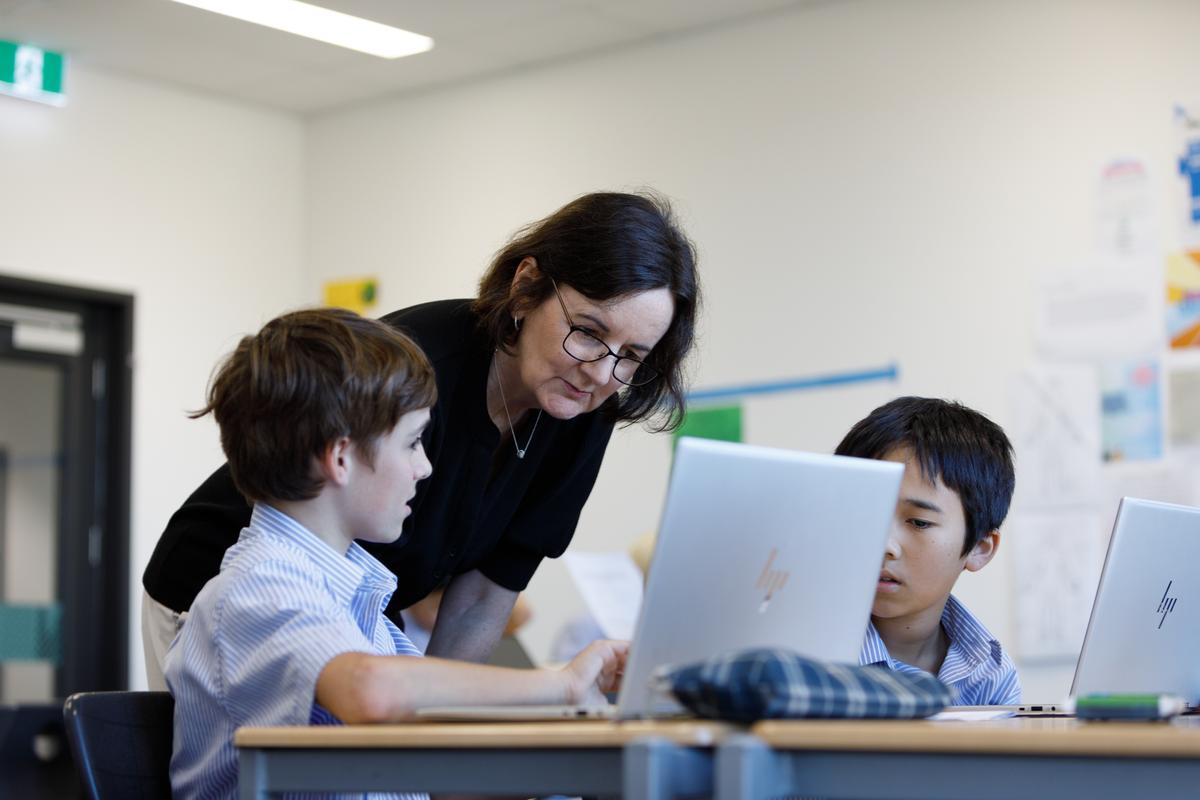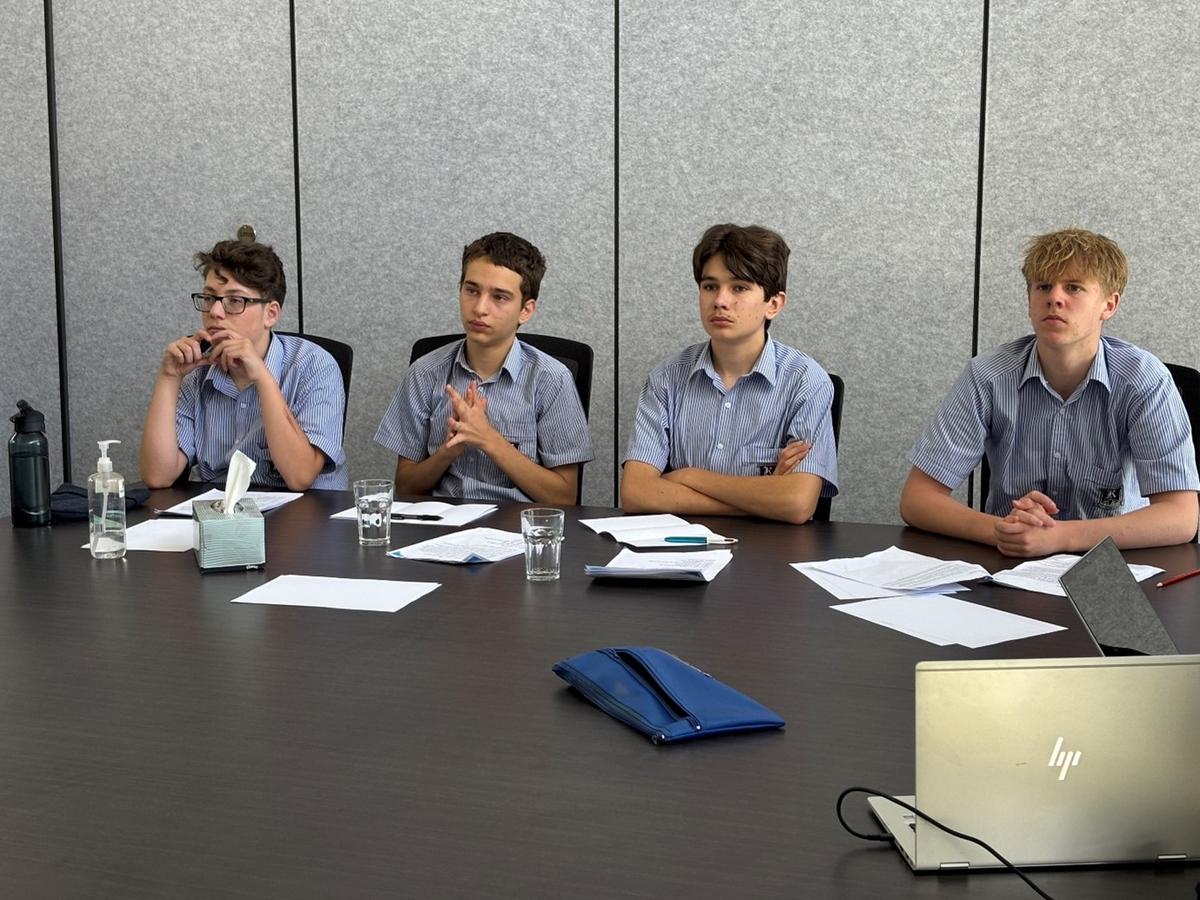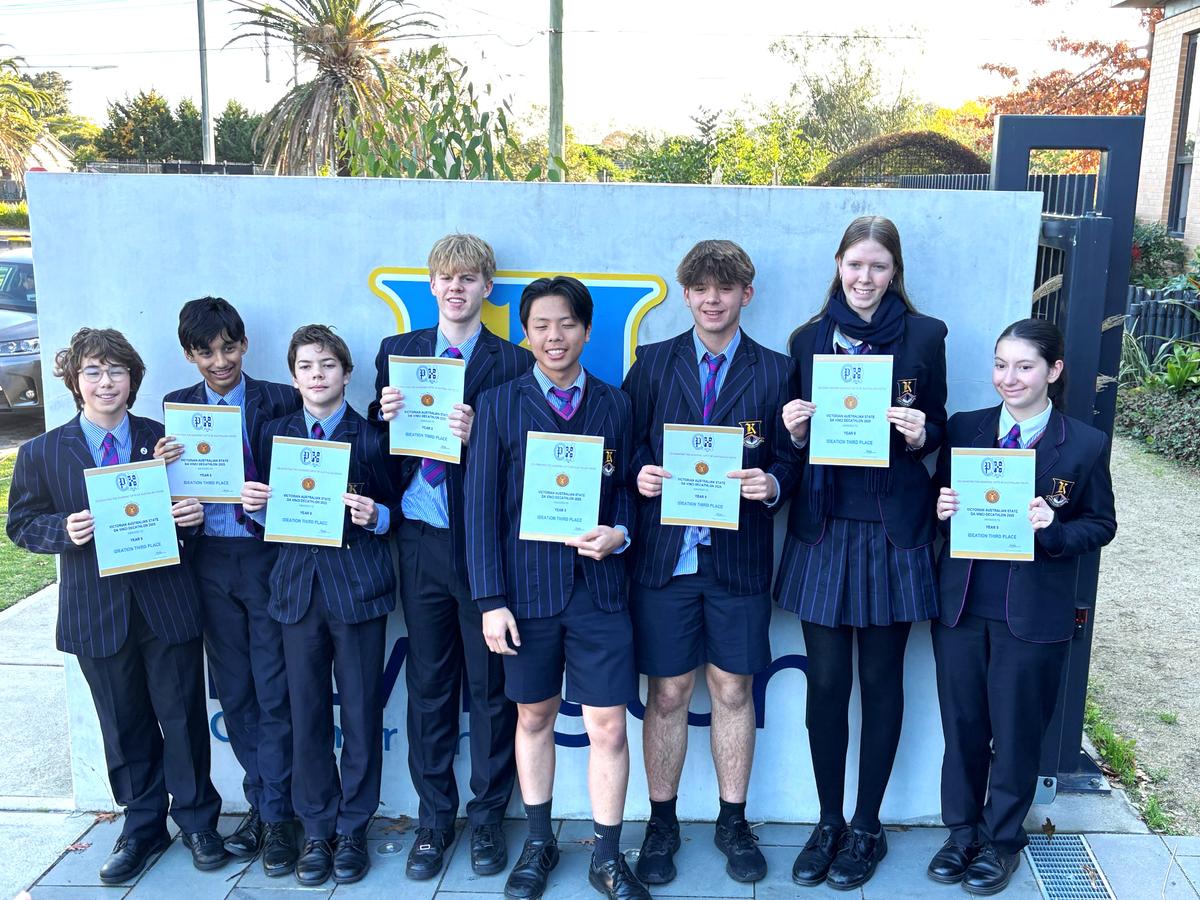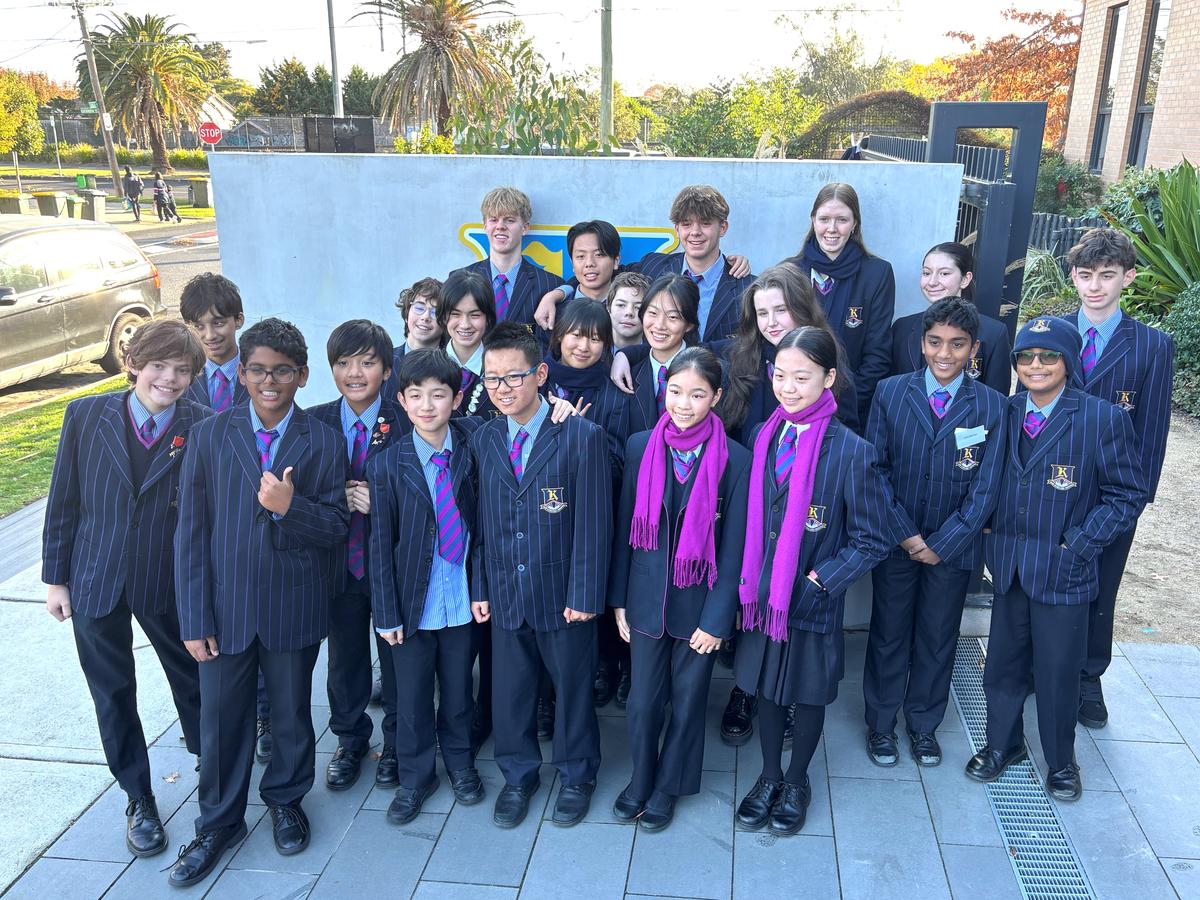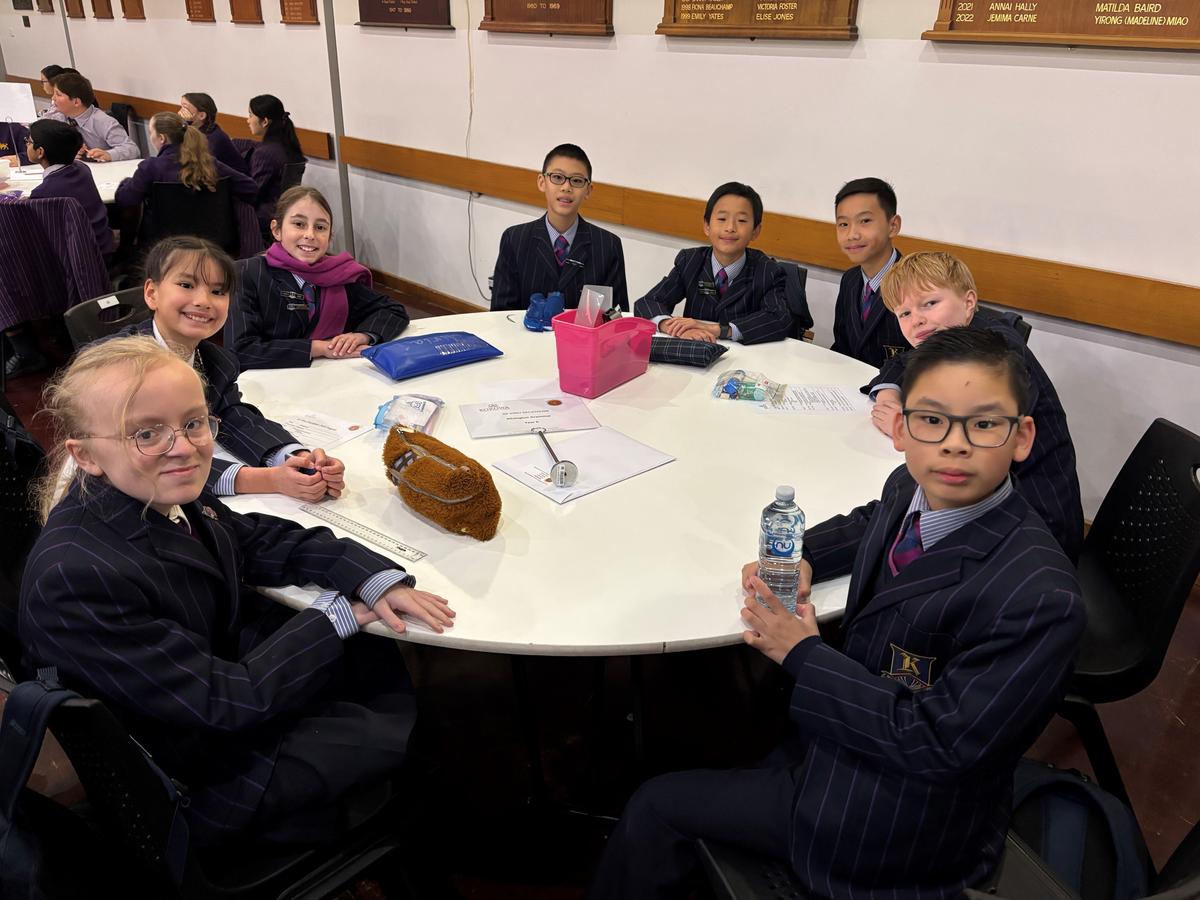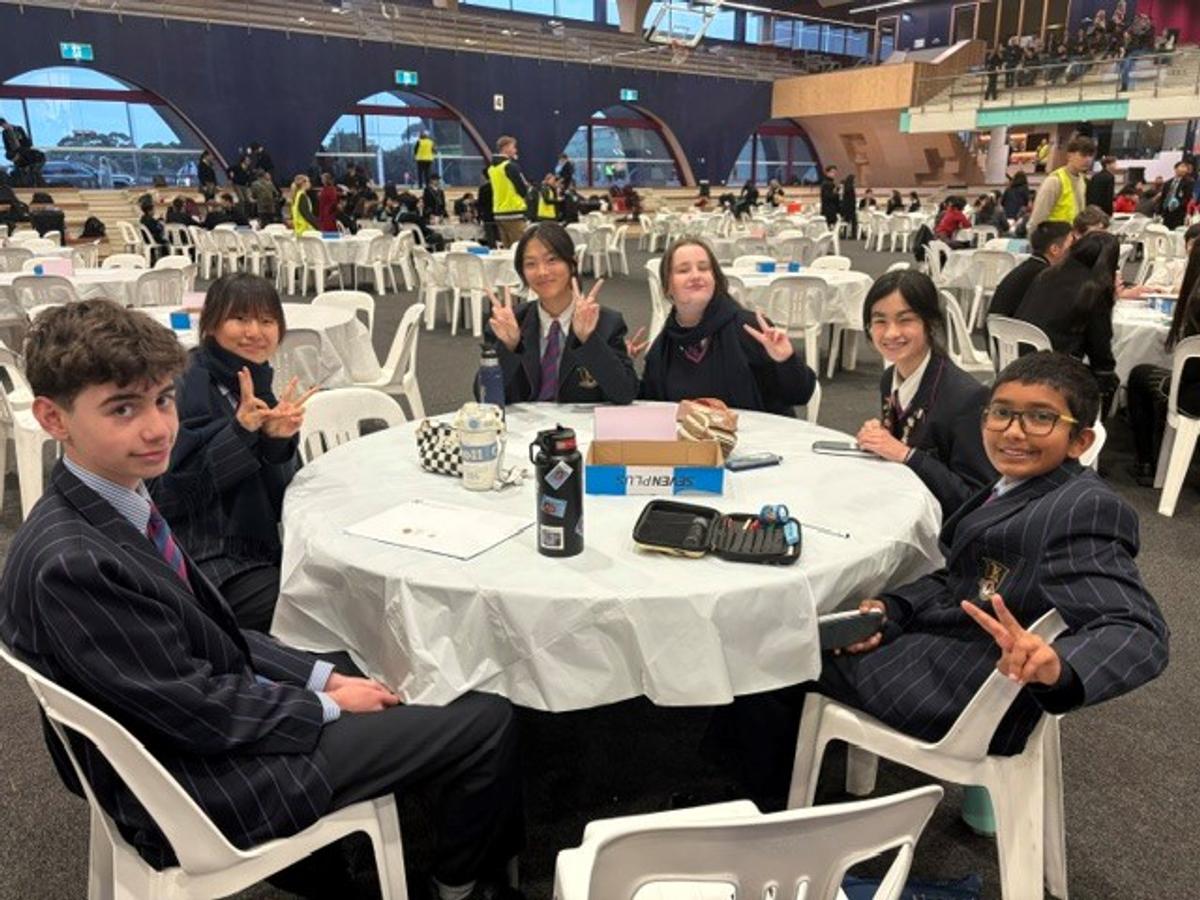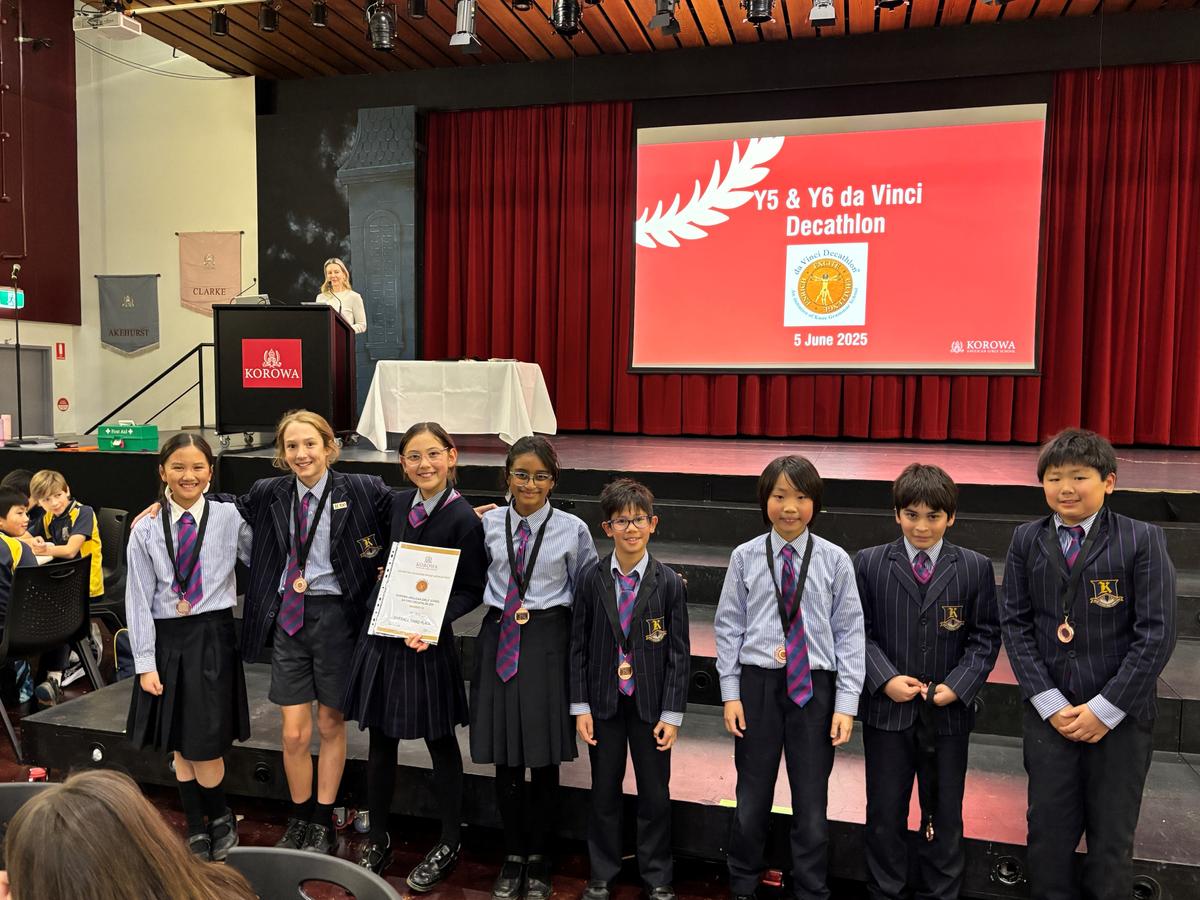From the Leadership Team
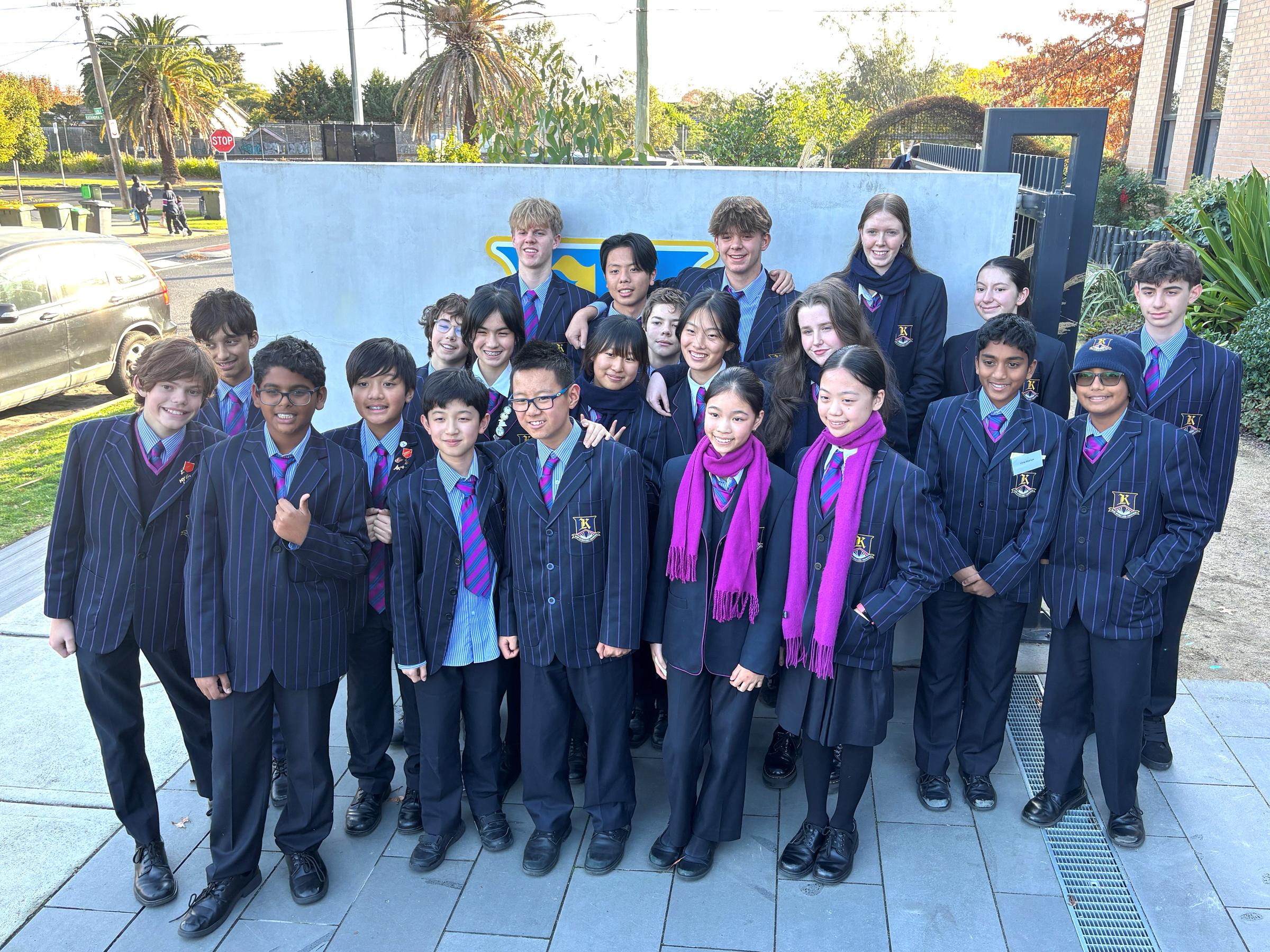
Future-focused learning: The role of critical and creative thinking
Tania Whitehead, Head of Talent and Enrichment
In today’s rapidly changing world, students need more than content knowledge; they also need the ability to think deeply, creatively and independently.
FOSTERING A DIVERSE LEARNING ENVIRONMENT
At Kilvington, we're deeply committed to fostering a learning environment that not only values academic excellence, but also champions curiosity, imagination and the courage to think differently. One of our schools’ goals is to inspire, develop, challenge and support all students to reach their potential.
Our Enrichment Program supports this goal by providing targeted opportunities to cultivate critical and creative thinking skills in our students.
Through inquiry-based learning, collaborative problem-solving, open-ended challenges and philosophical discussion, our students don’t just learn what to think, but how to think - developing important skills in reasoning, perspective-taking and ethical risk-taking.
Students in all areas of the school engage in a range of high-level thinking experiences across our diverse programs.
In the ELC, for example, the Reggio Emilia approach sees children as capable, curious and full of potential. This philosophy promotes inquiry, encourages exploration and allows students to express their ideas in original ways - sparking deep thinking from an early age.
SEEING THINGS FROM A DIFFERENT PERSPECTIVE
One of the most powerful applications of critical and creative thinking can be seen in the mathematics classroom. Too often, maths is perceived as a subject of right and wrong answers.
Yet, at its best, mathematics is a creative and strategic discipline, full of patterns, connections and opportunities for open-ended exploration. Students in both the mainstream classrooms and the enrichment sessions, are encouraged to approach problems from multiple angles, justify their reasoning, look for reined solutions and ask ‘what if?' questions.
They learn that maths is not just about calculations, but about curiosity, logic and imagination. It includes 'seeing things’ from a different perspective.
This mindset continues in programs like the Ethics Olympiad, which invites students to explore ethical dilemmas and defend their thinking, such as the da Vinci Decathlon, which challenges students across ten disciplines through collaborative, creative problem-solving, and the Future Problem Solvers program, where students learn a structured problem-solving process and apply it to real-world issues through meaningful, student-led projects.
REAL-WORLD APPLICATION
These experiences are more than competitions - they help students apply advanced thinking skills, work collaboratively and reflect on their learning. They're also highly engaging, igniting passion and curiosity in students who are eager to explore complex problems from multiple angles.
Importantly, the program fosters student agency, enabling students to pursue their passions, pose their own questions and reflect on their growth as learners and thinkers.
By focusing on critical and creative thinking, we’re not only preparing students for academic success, but for life. They’re learning to think with precision and imagination, to approach challenges ethically and effectively, and to contribute meaningfully to their communities - now and into the future.
Here are some reflections from students in our Talent and Enrichment Program:
'The Ethics Olympiad was an enjoyable and invigorating experience which challenged my teammates and I to consider real-world ethical dilemmas through the lens of philosophical frameworks and communicate them effectively and eloquently. It was a welcome surprise to participate in what was a genuinely profound and complex discourse on issues such as reproductive rights, climate change and the ethics of emerging technologies.'
Liam Eliav, Year 10
'Participating in the da Vinci Decathlon made me more curious about the world. It was a memory to cherish.'
Mona Bachmann, Year 5
'Researching and exploring a global issue made me realise just how bad our world can be, but writing solutions gave me the opportunity to find ways to help, which made me really happy.' Jasmine Li, Year 5
'As part of the Community Problem Solving (CmPS) program, our team known as S.P.E.A.K—Supporting Progress in English and Knowledge, is helping Prep and Year 1 students who are learning English as an additional language in our school community. Our team has created bilingual resources and is aiming to run regular sessions using games, flashcards and stories to support language development. Through my involvement in the project, I have learnt how challenging it can be to learn a new language. It’s also helped me to build my organisation and research skills.'
Harrison Zhou, Year 6
'Community Problem Solving overall as a whole has been an extremely fun, challenging and informative experience for me. Its taught me many skills that will be useful for future projects and goals that I hope to undertake. My skills in time management, teamwork and collaboration, researching and problem-solving have been enhanced to a level of improvement that I know will only get higher as I continue to complete the project. I have also been exposed to many learning experiences that you usually don't receive at this age, such as interviewing and presenting to Teachers and External Organisations about my project and the change I hope to make with my partner. Overall, I have really enjoyed and cherished this experience, and I hope to have a chance to complete it again next year.'
Aarit Arora, Year 8
